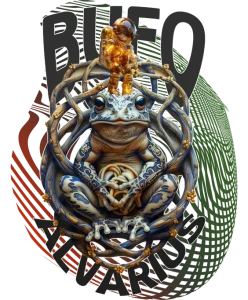Talking to your doctor about psychedelic therapy can feel daunting, especially given the lingering stigma associated with these substances. However, an open and informed discussion can help you navigate the options, risks, and potential benefits of these treatments. This article provides guidance on how to initiate a conversation with your doctor about psychedelic therapy, including preparing for the conversation, discussing safety and legality, and exploring available treatment options.
Understanding Psychedelic Therapy
Before you approach your doctor, it’s crucial to have a basic understanding of what psychedelic therapy entails. Psychedelic therapy uses psychoactive compounds that alter perception, mood, and cognition. These substances include classical psychedelics like psilocybin (found in magic mushrooms) and LSD, as well as empathogens like MDMA and dissociatives like ketamine.
Research shows that these substances, when administered in a controlled and therapeutic setting, can facilitate deep emotional breakthroughs and transformative experiences. They can help patients confront underlying psychological and emotional issues, leading to improvements in symptoms such as depression, anxiety, trauma, and addiction. Psychedelic therapy typically involves:
- Preparation: The patient meets with a therapist to set intentions for the session and discuss expectations.
- Administration: The patient takes the psychedelic substance under the supervision of a trained therapist.
- Integration: After the session, the therapist helps the patient process the experience and integrate insights into their daily life.
Ketamine-assisted therapy is already legally available in some clinics for the treatment of treatment-resistant depression and suicidal ideation, while psilocybin and MDMA are in advanced stages of clinical trials, showing promising results for major depressive disorder and PTSD, respectively.
Steps to Prepare for Your Conversation
1. Educate Yourself on Psychedelic Therapy
Before initiating the conversation with your doctor, it’s essential to gather as much information as possible about psychedelic therapy, including:
- The specific psychedelic substances being researched for therapeutic use (e.g., psilocybin, MDMA, ketamine).
- The conditions these substances have shown promise in treating (e.g., depression, PTSD, anxiety, addiction).
- The potential risks and side effects of these substances.
- The current legal status of psychedelic-assisted therapy in your country or region.
By educating yourself, you can demonstrate to your doctor that you are well-informed and serious about exploring this treatment option. You can reference clinical studies from reputable institutions such as Johns Hopkins University, Imperial College London, and MAPS (Multidisciplinary Association for Psychedelic Studies), which have conducted significant research into the therapeutic use of psychedelics.
2. Assess Your Medical History and Suitability
Not everyone is a candidate for psychedelic-assisted therapy. Some medical conditions, such as schizophrenia, bipolar disorder, or heart conditions, may increase the risks associated with certain psychedelics. It’s important to assess your personal health history and consider whether you might be a good candidate for these treatments.
For instance, ketamine therapy, which is more widely available than other psychedelic therapies, may not be suitable for people with a history of substance abuse due to its potential for addiction. Psilocybin and MDMA are still under clinical investigation and may not be available outside clinical trials or certain jurisdictions.
Take stock of your mental health history, current medications, and any contraindications that may impact your eligibility for psychedelic therapy.
3. Prepare Specific Questions for Your Doctor
Prepare a list of questions you want to ask your doctor, such as:
- Are you familiar with the current research on psychedelic therapy?
- Have any of your patients undergone psychedelic-assisted therapy?
- Are there legal and safe psychedelic therapy options in my area?
- Based on my mental health history, would I be a good candidate for psychedelic therapy?
- What are the potential risks, and how can they be mitigated?
- How do you see psychedelic therapy complementing or replacing my current treatment plan?
Having clear and specific questions will help guide the conversation and allow your doctor to understand your interest and concerns about this emerging field of treatment.
Having the Conversation
Once you are prepared, it’s time to initiate the conversation with your doctor. Here are steps to ensure the discussion is productive:
1. Start with an Open Dialogue
Begin the conversation by sharing your interest in exploring psychedelic therapy and why you think it may be beneficial for your mental health. Explain how traditional treatments have worked or not worked for you, and why you are considering alternatives.
For example, you might say:
“I’ve been reading about recent studies on psychedelic therapy, and it seems promising for conditions like depression and PTSD. I’ve tried traditional treatments, and while they’ve helped to some degree, I’m interested in exploring new options that might work differently. I’d like to hear your thoughts on this.”
By framing the conversation in this way, you show that you’re approaching the subject thoughtfully and are interested in your doctor’s professional perspective.
2. Discuss Current Treatments and Their Efficacy
It’s important to review your current treatment plan and whether it has been effective in managing your condition. Psychedelic therapy is often considered when traditional treatments—such as SSRIs for depression or CBT for PTSD—have not provided the desired outcomes.
Share your experiences with your current medications and therapies and why you feel psychedelic therapy could be an option worth considering. You can highlight the specific mental health conditions that psychedelic therapy is known to address.
3. Explore the Science and Evidence Behind Psychedelics
If your doctor is unfamiliar with psychedelic therapy, consider sharing some key studies that demonstrate the potential of these treatments. You can reference clinical trials and outcomes from well-respected research institutions:
- Johns Hopkins University has conducted numerous studies on psilocybin for depression and addiction.
- MAPS has led groundbreaking research on MDMA-assisted psychotherapy for PTSD.
- Ketamine-assisted therapy has been FDA-approved for treatment-resistant depression and is widely available in specialized clinics.
By providing credible, science-based evidence, you help create a foundation for a more informed discussion.
4. Address Concerns About Safety and Legality
Your doctor may express concerns about the safety and legality of psychedelic substances. It’s important to acknowledge these concerns and discuss them openly. While many psychedelics remain illegal outside clinical trials, ketamine therapy is a legal and available option for treatment-resistant depression in some countries, including the United States.
Explain that you understand the risks associated with psychedelics, but emphasize that psychedelic-assisted therapy is conducted in a controlled and therapeutic setting, often under the guidance of licensed professionals. Discuss the screening processes that ensure only suitable candidates undergo these treatments, and mention the importance of integration therapy in helping patients process their experiences safely.
If your doctor is concerned about legal constraints, ask them whether you would be eligible to participate in ongoing clinical trials for psilocybin or MDMA in your region.
Exploring Available Psychedelic Therapy Options
Once you’ve had a productive conversation with your doctor, the next step is to explore psychedelic therapy options that are available to you. Here are some options to consider:
1. Ketamine-Assisted Therapy
Ketamine therapy is currently one of the most widely available psychedelic-assisted therapies and has been approved in many countries for the treatment of depression, suicidal ideation, and some anxiety disorders. Ketamine works differently from classic antidepressants and is known for its rapid-acting effects on depressive symptoms.
Many clinics offer ketamine infusion therapy, where the patient receives a controlled dose of ketamine intravenously, followed by a period of therapy or integration. Ask your doctor if ketamine therapy is an option for you or if they can refer you to a ketamine clinic in your area.
2. Clinical Trials for Psilocybin and MDMA
If you are interested in exploring psilocybin or MDMA-assisted therapy, you may need to enroll in a clinical trial, as these substances are still in the experimental phase for medical treatment. However, they are nearing approval for certain conditions, such as MDMA for PTSD and psilocybin for depression.
Ask your doctor about current clinical trials that you may be eligible for, and explore resources like ClinicalTrials.gov or the MAPS website for information on upcoming studies.
3. Legal and Therapeutic Retreats
In some countries, particularly in South America and parts of Europe, psychedelic therapy is available through legal therapeutic retreats, particularly for ayahuasca and **psilocybinIn some countries, particularly in South America and parts of Europe, psychedelic therapy is available through legal therapeutic retreats, particularly for ayahuasca and psilocybin. Retreat centers offer guided psychedelic experiences under the supervision of trained facilitators, with a focus on healing, emotional release, and spiritual exploration. These retreats often incorporate elements of indigenous practices and include integration support to help participants process their experiences.
If you are considering attending a legal psychedelic retreat, it’s essential to do thorough research on the safety, reputation, and medical oversight of the retreat center. While these experiences can be deeply transformative, they are also intense, and careful preparation and post-retreat integration are crucial for ensuring a safe and beneficial experience.
Continuing the Conversation with Your Doctor
Even after your initial conversation with your doctor about psychedelic therapy, it’s important to keep the lines of communication open. Discuss any changes in your symptoms, mental health progress, or concerns, and continue to explore treatment options as the field of psychedelic medicine evolves.
Ask for ongoing support, whether through therapy, monitoring, or assistance with integration, especially if you decide to pursue one of the available options like ketamine-assisted therapy or a retreat experience. Your doctor can provide valuable guidance on how to safely incorporate psychedelic treatments into your broader mental health care plan.
Conclusion
Talking to your doctor about psychedelic therapy may feel intimidating, but it’s a critical step toward making informed decisions about your mental health treatment. By educating yourself, preparing specific questions, and addressing any concerns about safety and legality, you can have a productive and open conversation with your healthcare provider.
As psychedelic therapy becomes more widely accepted and legal barriers continue to shift, having an informed and supportive healthcare professional by your side will help you navigate the evolving landscape of psychedelic-assisted therapies and ensure that any treatment you pursue is safe, ethical, and effective.
If you are curious about exploring psychedelic therapy, this conversation with your doctor can be the first step in discovering new and potentially transformative options for healing and personal growth


